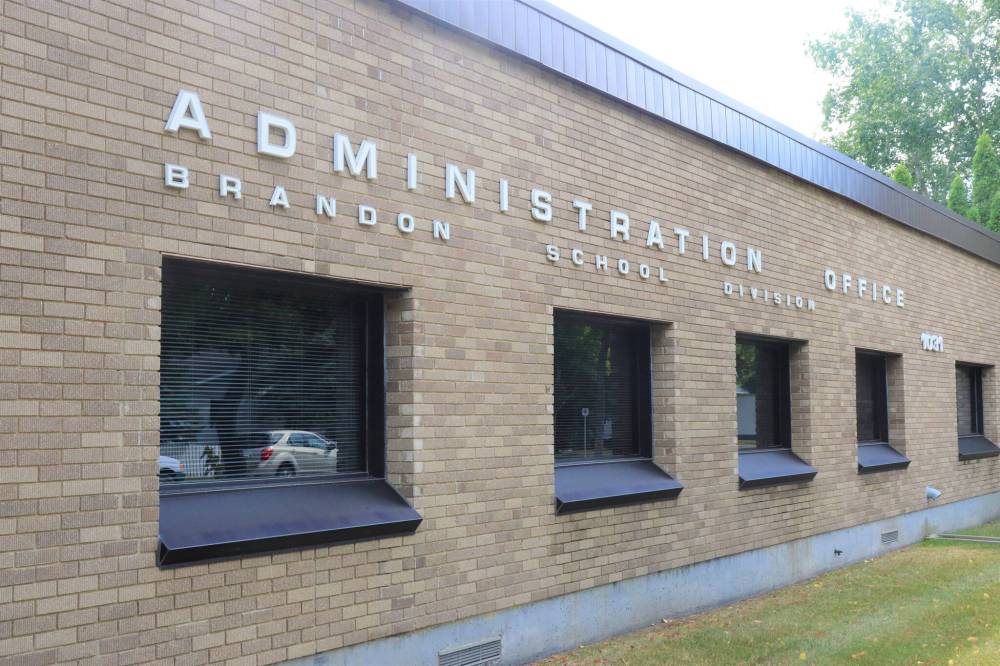School divisions bear fiscal burden of provincial policy
Advertisement
Read this article for free:
or
Already have an account? Log in here »
We need your support!
Local journalism needs your support!
As we navigate through unprecedented times, our journalists are working harder than ever to bring you the latest local updates to keep you safe and informed.
Now, more than ever, we need your support.
Starting at $15.99 plus taxes every four weeks you can access your Brandon Sun online and full access to all content as it appears on our website.
Subscribe Nowor call circulation directly at (204) 727-0527.
Your pledge helps to ensure we provide the news that matters most to your community!
To continue reading, please subscribe:
Add Brandon Sun access to your Free Press subscription for only an additional
$1 for the first 4 weeks*
*Your next subscription payment will increase by $1.00 and you will be charged $20.00 plus GST for four weeks. After four weeks, your payment will increase to $24.00 plus GST every four weeks.
Read unlimited articles for free today:
or
Already have an account? Log in here »
“We’re looking at a pretty hefty tax increase unless we start cutting things. But there’s nothing left to cut … We have one of the highest mill rates in the province, and yet somehow we’re still short-changed by the province.”
— Brandon School Division board of trustees vice-chair Duncan Ross
“The cost to divisions in Winnipeg will be negligible, but for the rest of the province, it’s going to be a lot … What we’re trying to tell you is bad. It’s really bad.”

The Brandon School Division may require a school tax increase of more than 10 per cent to cover a provincially mandated rise in teacher salaries if the province does not provide additional financial support. (The Brandon Sun files)
— Brandon School Division board of trustees chair Linda Ross
Those words of concern could not be clearer, nor more alarming. Brandon home and business owners are facing a hefty hike in the school tax portion of their 2026 property taxes — more than 10 per cent — unless the Kinew government substantially increases its financial support for the Brandon School Division.
That isn’t because the division is a big spender in need of a provincial bailout. To the contrary, the BSD is among the more fiscally responsible in the province and consistently has one of the lowest per-student expenditure levels among all divisions in the province.
The problem, which was made clear by the school trustees, BSD Supt. Mathew Gustafson and BSD secretary-treasurer Denis Labossiere, is that teacher salary harmonization — a new policy that ensures that teachers are paid the same wages across the province — will have a significant impact on the BSD payroll beginning in the coming fiscal year, and for each year thereafter.
In particular, as was reported yesterday, the BSD’s substitute teacher costs are projected to rise by more than 20 per cent.
It is difficult to challenge the merits of teacher salary harmonization, but the provincial government has offloaded the cost of that policy choice onto the province’s school divisions. Doing so will have negligible impact on Winnipeg school divisions, but it will have a huge impact on school divisions outside the Perimeter Highway, including the Brandon School Division.
The BSD may require a school tax increase of more than 10 per cent to cover the increased teacher wages if the province does not provide additional financial support, but other divisions outside of Winnipeg could require tax increases of 20 per cent or higher to offset those higher costs.
At a time when Manitoba’s home and business owners are already struggling to cope with inflation and affordability issues — and Brandon home and business owners are already grappling with both large property tax increases as well as huge sewer and water rate increases, both imposed by our city council — a massive, permanent increase in school taxes would make the affordability challenge far more onerous.
It could cause several home and/or business owners to conclude that they can no longer afford to remain in their homes or, in the case of businesses, can no longer afford to have a presence within the city.
Even worse, it would cement Brandon’s standing as one of the highest-taxed cities in all of Western Canada. The negative impact that such fiscal reality would have on the city’s competitiveness — on its ability to attract and retain business investment, and/or its ability to attract desperately needed health professionals and other highly skilled workers — is incalculable. It would seriously hamper, if not derail, the city’s economic development efforts.
As BSD school board chair Linda Ross says, that would be “really bad,” and that may be an understatement.
If there is a silver lining to this dark situation, it is that the BSD has raised the issue early in its budget process, while the provincial government is still working on the details of its next budget. That means there is still time for the province to step up, take responsibility for the financial impact of its teacher harmonization policy, and ensure that school divisions receive adequate funding to offset the higher teacher costs caused by that policy.
Throughout his tenure as Manitoba premier, Wab Kinew has shown sensitivity to affordability issues and the financial struggles of Manitobans. We urge the premier, Education Minister Tracy Schmidt and Finance Minister Adrien Sala to keep that dire reality in mind as they craft the funding formula for school divisions for the upcoming fiscal year.
We urge them to ensure that home and business owners are not saddled with a harsh economic burden caused by their government’s policy choice.
